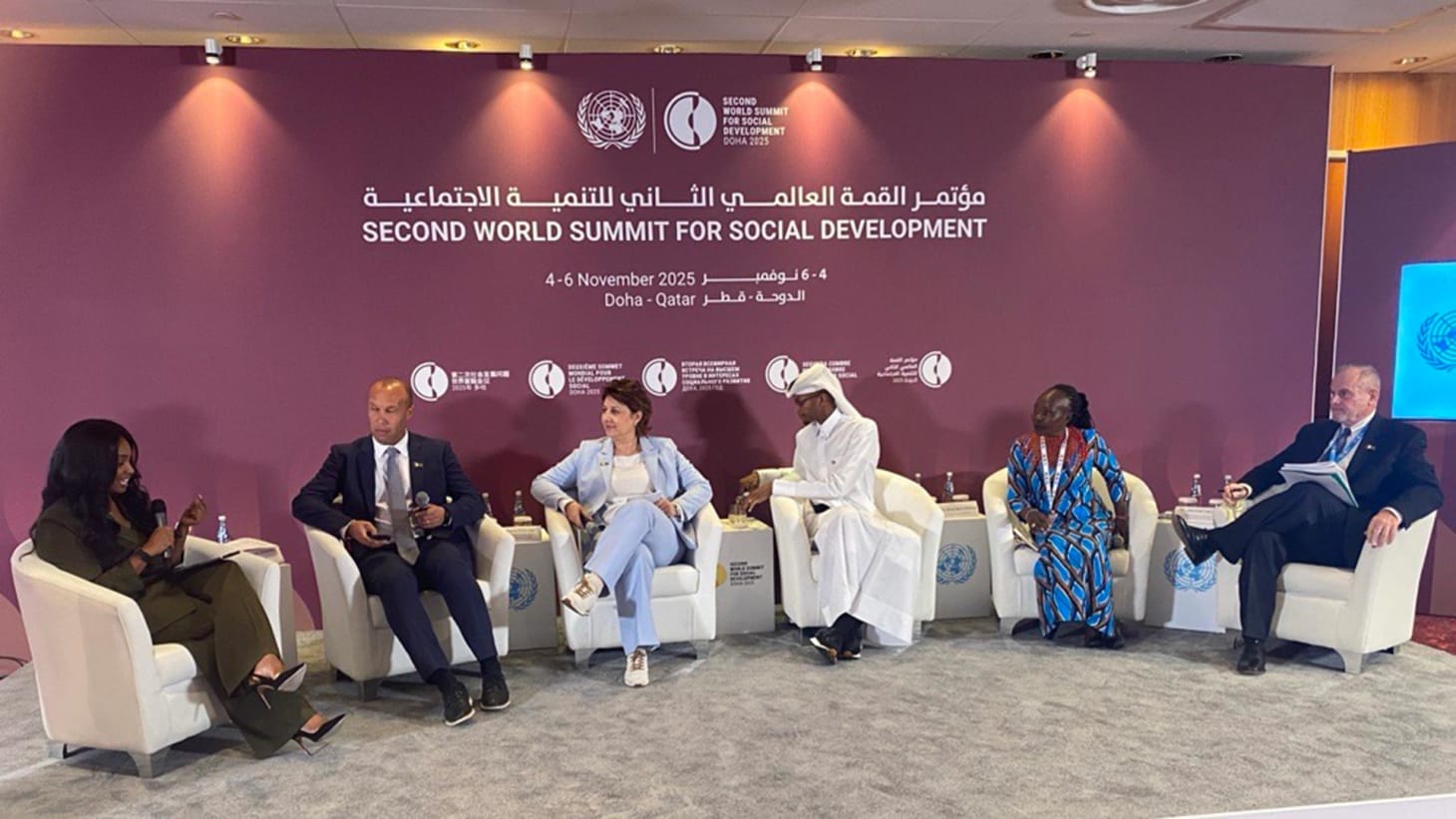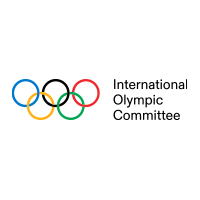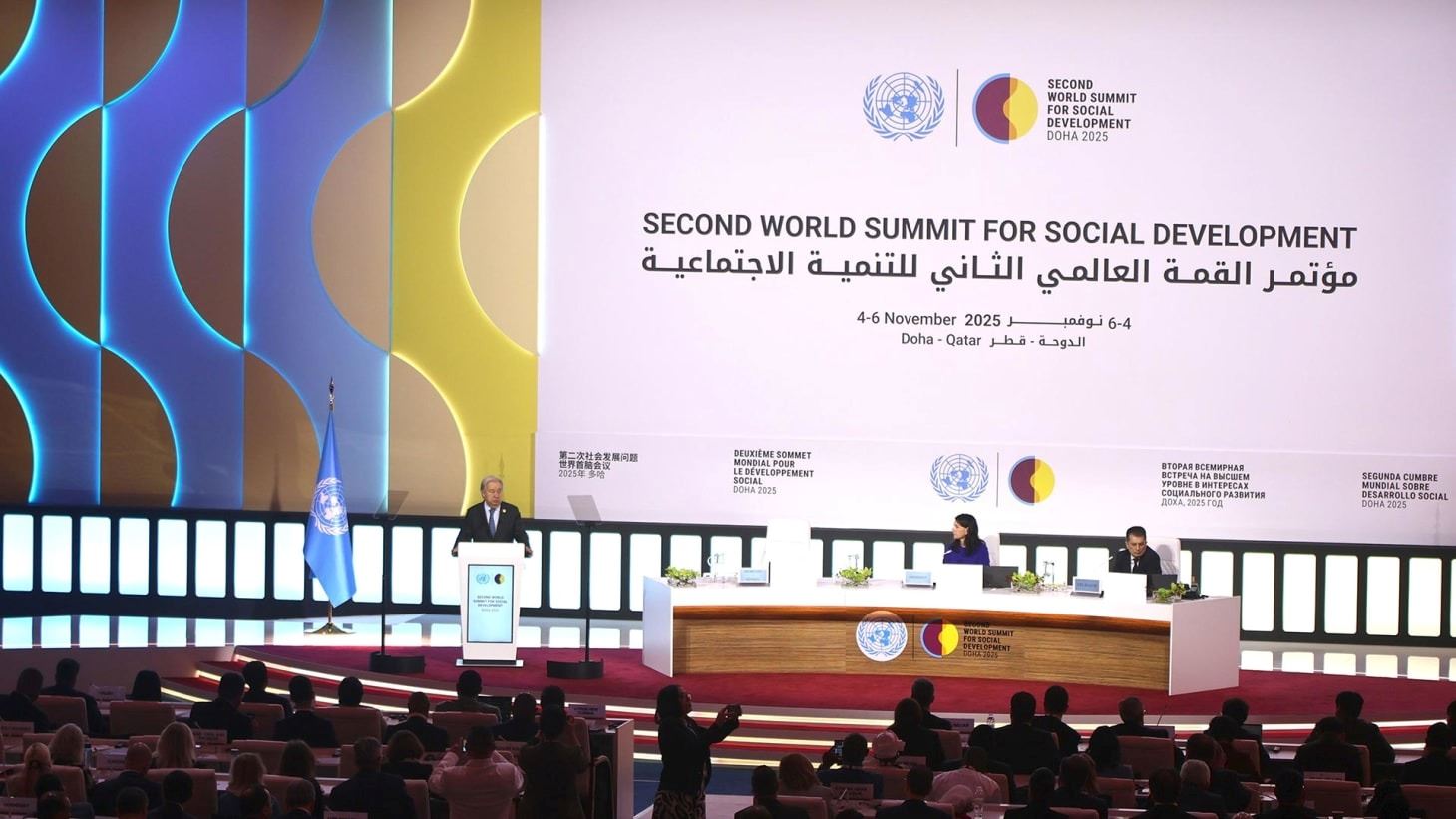06 November 2025 - United Nations (UN) Member States have adopted a declaration to deepen sport’s contribution to sustainable development, pledging to embed it in economic, social and environmental policies and broaden access to sporting opportunities worldwide. The Declaration was adopted this week at the Second World Summit for Social Development, convened by the UN General Assembly in Doha, Qatar. The International Olympic Committee (IOC) was in attendance and actively supported the commitment, reinforcing the shared belief that sport is a powerful tool for inclusion and progress.
Key facts
- UN Member States adopted a declaration at the Second World Summit for Social Development to strengthen sport’s role in achieving the UN’s 2030 Agenda and Sustainable Development Goals (SDGs).
- The IOC actively supported the declaration and, through President Kirsty Coventry’s address, urged governments to turn recognition into investment, highlighting that every dollar invested in sport-based programmes can generate five to six dollars in social value.
- The declaration and discussions at the Summit reaffirmed sport as a low-cost, high-impact solution for social integration, education, health and equality — with the IOC advancing these goals through global initiatives contributing to its Olympism365 strategy.
A call for more investment in sport
During a side event titled “Policy Meets the Pitch: Integrating Sport into Social Inclusion Agendas”, IOC President Kirsty Coventry thanked Member States in a video message and called for more investment in sport: “I want to thank all Member States for recognising sport in the Political Declaration — as a tool for inclusion, cohesion and social development. But now we must turn this recognition into investment in sport. Because investing in sport is investing in people – it is investing in potential, in belonging and in hope.
Research shows that every dollar invested in sport-based programmes can return five to six dollars’ worth of social value, and sometimes much higher than that. Few other investments deliver such wide and lasting benefits for so little cost.

Kirsty Coventry - IOC President

The side event, co-organised by the IOC, was expressly dedicated to sport’s role in advancing social integration and development. It brought together representatives from the UN, Peace and Sport, UN Women and other voices from across and beyond sport to discuss sport-based initiatives, partnerships and financing models that generate social and economic returns for all, especially disadvantaged communities.
President Coventry also pointed out the value of sport in social development – especially in today’s increasingly turbulent times: “Inequality is rising. Conflicts are tearing communities apart. Too many young people are left out of education or work. We need solutions that are simple, inclusive and affordable – and sport is one of the most effective low-cost, high-impact solutions we have,” she said.
Through its Olympism365 strategy, the IOC is strengthening the role of sport as an important enabler for the UN’s SDGs: “With hundreds of initiatives across more than 180 countries, we see every day how sport delivers meaningful impact in peace, education, health, gender equality and youth development — and how local action brings these values to life in ways that are rooted in each community’s reality.”
The collective effort to leverage the power of sport to advance sustainable development is central to the success of these initiatives, as emerged during the event: “Together with our many committed partners, we are turning the Olympic values into real improvements in people’s lives: in communities, classrooms, health centres, refugee camps and city streets,” President Coventry concluded.
Accelerating the 2030 Agenda
The Declaration signed by UN Member States seeks to accelerate the implementation of the UN’s 2030 Agenda for Sustainable Development and the realisation of the UN’s SDGs, of which the IOC is a long-time and high-profile supporter. It calls on UN Member States to:
“Advance the role of culture, as well as sport, in contributing to social integration and social cohesion and more effective, inclusive, equitable and sustainable development, integrating culture and sport into economic, social and environmental development policies and strategies and ensuring adequate public investment in the protection and promotion of culture, sport and intercultural dialogue.”
It further urges governments to: “Expand inclusive access to technical and vocational education and training, including in science, technology, engineering and mathematics, physical education and sport, lifelong learning, financial and digital literacy and skills development for all.”
The full Declaration is available here.
About the Summit
The Second World Summit for Social Development, held in Doha from 4 to 6 November 2025, marked 30 years since the landmark World Summit for Social Development in Copenhagen in 1995. That historic gathering gave rise to the Copenhagen Declaration on Social Development – a pioneering set of 10 commitments to advance social development worldwide.
The 2025 Summit builds on those commitments by accelerating action on poverty eradication, the promotion of full employment and decent work, and social inclusion, ensuring that no one is left behind in an increasingly complex world.

